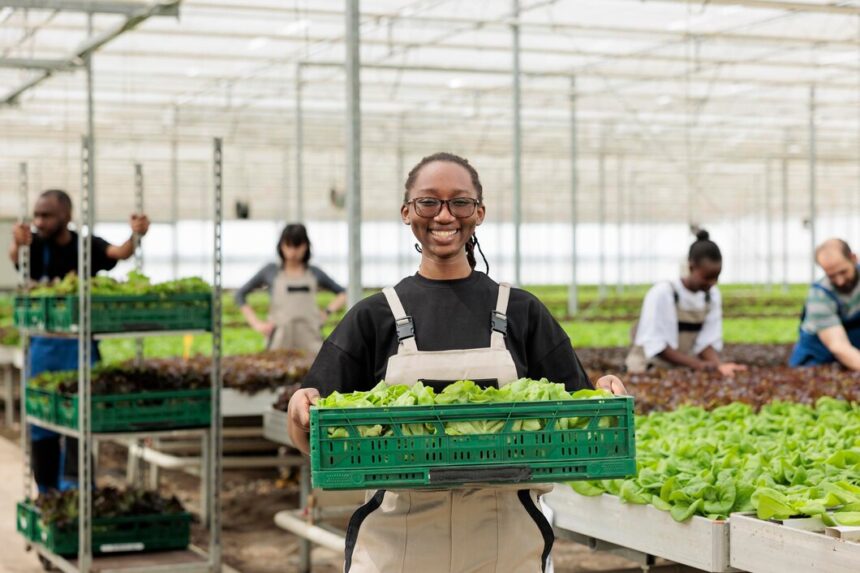Agribusiness is a critical sector in South Africa, not only providing food security but also contributing to economic growth and employment. With increasing challenges like climate change, fluctuating market conditions, and the need for sustainable farming practices, agribusiness partnerships offer a way to enhance productivity, innovation, and profitability. Here are ten ways South African agribusinesses can leverage partnerships to achieve long-term success.
1. Collaborate on Research and Development (R&D)
Partnerships with research institutions and universities can drive innovation by introducing new technologies and methods in farming. Collaborating on R&D allows agribusinesses to stay at the cutting edge of developments in biotechnology, water-saving irrigation techniques, and sustainable farming practices. For instance, collaborating with institutions like Stellenbosch University or the Agricultural Research Council can lead to breakthroughs in crop yields, pest control, and soil management.
2. Access to Financing
Agribusiness partnerships with financial institutions can unlock better access to capital. Partnering with banks, investment funds, or governmental programs designed to support agriculture can provide the necessary funding for expansion, acquisition of new technology, or infrastructure improvements. Public-private partnerships in South Africa, like those initiated by the Department of Agriculture, Land Reform, and Rural Development, offer grants and loans tailored to agribusiness needs.
3. Supply Chain Integration
Forming partnerships along the supply chain—whether with input suppliers, processing plants, or retailers—can improve efficiency, reduce costs, and increase profits. For example, partnerships with local cooperatives can ensure a steady supply of inputs, while working with processing firms can guarantee access to markets for agricultural products, creating more stability for farmers.
4. Co-Branding and Market Expansion
By partnering with established brands, small and medium agribusinesses can leverage the market presence and reputation of larger companies. This could involve co-branding or joint marketing efforts, especially in organic or niche markets. Such partnerships enable businesses to tap into new consumer bases both locally and internationally. South Africa’s agri-exports, such as citrus and wine, can benefit significantly from partnerships with global distributors.
5. Technology Transfer and Training
Collaborating with technology providers, agricultural consultancies, and training institutes can help farmers adopt modern techniques and improve operational efficiency. Partnerships focused on technology transfer, such as precision agriculture tools or automated irrigation systems, can drastically reduce resource wastage and increase yields. Programs like those offered by Agri SA or Grain SA support farmers with the latest innovations in farming practices.
6. Sustainability and Environmental Impact
With environmental concerns becoming a central focus in agriculture, partnerships that prioritize sustainable farming practices are critical. Collaborations with non-governmental organizations (NGOs), environmental agencies, or certification bodies can enhance a farm’s environmental credentials. These partnerships allow for the implementation of eco-friendly practices such as organic farming, renewable energy usage, or sustainable water management, which also cater to the growing consumer demand for green products.
7. Shared Infrastructure Projects
Agribusiness partnerships can pool resources to develop shared infrastructure such as storage facilities, transportation networks, or irrigation systems. Such collaborations, particularly in rural areas, lower individual costs and improve efficiency. In South Africa, projects like Agri-parks, a government-led initiative, enable small-scale farmers to access essential infrastructure while fostering regional economic development.
8. Lobbying and Policy Advocacy
Agribusiness partnerships can also be leveraged for political influence. Forming alliances with agricultural associations and industry groups enables agribusinesses to have a stronger voice in policy discussions. Whether it’s advocating for favorable trade policies, better access to markets, or subsidies for emerging farmers, collective lobbying efforts can help shape legislation that benefits the entire agricultural sector.
9. Inclusive Value Chain Partnerships
South Africa’s agricultural sector faces challenges in inclusivity, with many smallholder farmers being marginalized. Agribusinesses can partner with small-scale farmers and cooperatives to create inclusive value chains that benefit all stakeholders. For example, by integrating smallholder farmers into supply chains and offering them training and financial support, large agribusinesses not only help reduce inequality but also ensure a more diversified and secure supply chain.
10. Agritourism and Community Engagement
Agritourism offers an innovative way for agribusinesses to diversify income streams while engaging with local communities. Partnering with tourism boards, hotels, and travel agencies can create opportunities for farms to host visitors, provide farm-to-table experiences, and promote local produce. This not only boosts revenue but also fosters stronger community ties and encourages sustainable rural development. South Africa’s wine industry, for example, has successfully incorporated agritourism to attract international visitors.
Agribusiness partnerships in South Africa can provide significant benefits, from increased innovation and sustainability to access to new markets and financing. By leveraging these collaborations, South African agribusinesses can enhance their competitiveness, ensure sustainable growth, and contribute to the country’s broader economic development. Whether it’s through shared infrastructure, technology transfer, or inclusive value chains, partnerships will remain crucial to the future of agriculture in South Africa.
Join 'Farmers Mag' WhatsApp Channel
Get the latest Farming news and tips delivered straight to your WhatsApp
CLICK HERE TO JOIN






